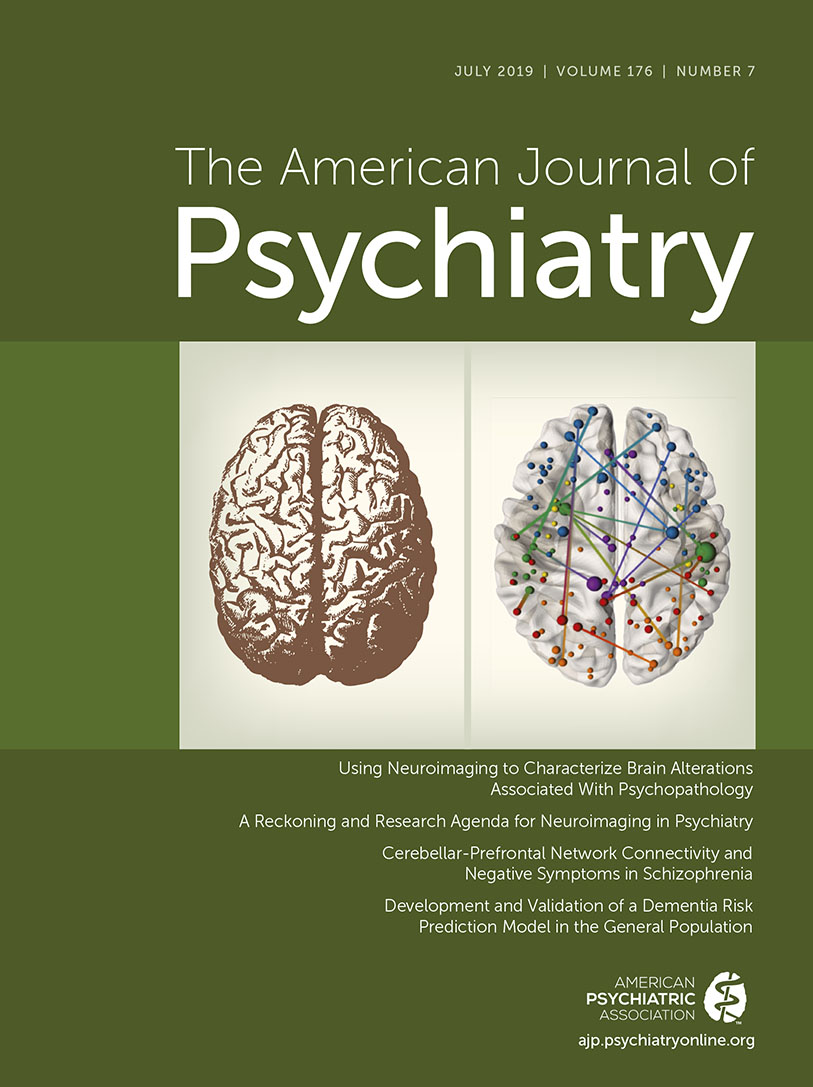The Unhealthy Chicken or the Unhealthy Egg: Quitting Smoking Matters: Response to Hajek et al.
To the Editor: In their letter, Hajek et al. suggest (residual) confounding and reverse causation as possible alternative explanations for the observed associations between (changes in) smoking and (changes in) cognition in our article (1). We agree that this could be possible, and we already mentioned this in the limitation section of the article. However, we think that these alternative explanations are not very plausible. First, we used statistical models with an extensive set of covariates (including years of education) to control for confounding factors. We also corrected for symptom remission by including positive, negative, and general symptoms as covariates in all models. We would like to note that there is a growing body of observational studies in the general population suggesting that smokers generally show an increased decline in cognitive abilities in later life compared with ex-smokers or nonsmokers (2–4). Second, regarding reverse causation, studies about cognitive functioning being predictive for successful smoking cessation have been inconsistent (5). One method that can be used to demonstrate how variables influence one another over time is cross-lagged panel analysis. We tried this strategy to investigate the relationship between cognitive functioning and smoking status or cigarettes smoked per day after 3 and 6 years. However, the models showed poor fit measures, implicating unreliable results probably due to a lack of statistical power. To the best of our knowledge, long-term trials with smoking patients with psychosis who were randomly assigned to smoking cessation or continued smoking are lacking because of the considerable ethical implications. An emerging method that aims to overcome residual confounding and reverse causation is Mendelian randomization. This approach builds on genetic variation as a natural experiment and uses genetic variants as instrumental variables to investigate the effects of modifiable risk factors for disease (6). The plausibility of the findings of Mendelian randomization (7) and multivariable Mendelian randomization (8) depends on several key assumptions. Multivariable Mendelian randomization could be used to investigate the lifetime effects of cognition or education on the odds of smoking, and vice versa, while including liability to schizophrenia as a confounding effect. For example, a study using multivariable Mendelian randomization suggested that educational attainment, but not cognitive ability, has an effect on smoking behavior (unpublished 2018 study of E. Sanderson et al.). Of note, the fact that Mendelian randomization typically investigates long-term effects over the life course makes it difficult to investigate transient effects of (changes in) smoking on cognition (9).
Hajek et al. state that our results might not imply that smoking impairs cognitive functioning and that the findings simply confirm that people who find smoking rewarding differ from those who do not. We argue that our results indicate at least that smoking or starting to smoke is not associated with improvement of long-term cognitive functioning. A lack of long-term benefit does not support an important aspect of self-medication (i.e., smoking as treatment for cognitive impairment). Clinicians frequently cite smoking as self-medication as a reason for not treating patients for a nicotine addiction (10). There is an urgent need to further investigate other reasons patients smoke (e.g., shared vulnerability, misattribution, or adverse coping strategies) (11). Previous research has shown that patients with psychosis can safely quit smoking with medication or nicotine-replacement therapy and by learning healthier coping strategies (12). This is important because the potential gain of smoking cessation for general medical and financial health, and most likely psychological and cognitive health, is large (13). This is the case for patients with psychosis in particular because they smoke more often and more heavily (14). Whether it is the chicken or the egg, smoking is unhealthy, and patients should be supported to quit this potentially fatal behavior.
1 : Association between smoking behavior and cognitive functioning in patients with psychosis, siblings, and healthy control subjects: results from a prospective 6-year follow-up study. Am J Psychiatry 2018; 175:1121–1128Link, Google Scholar
2 : Smoking history and cognitive function in middle age from the Whitehall II study. Arch Intern Med 2008; 168:1165–1173Crossref, Medline, Google Scholar
3 : Smoking as a risk factor for dementia and cognitive decline: a meta-analysis of prospective studies. Am J Epidemiol 2007; 166:367–378Crossref, Medline, Google Scholar
4 : 24-month effect of smoking cessation on cognitive function and brain structure in later life. Neuroimage 2011; 55:1480–1489Crossref, Medline, Google Scholar
5 : Behavioural tasks sensitive to acute abstinence and predictive of smoking cessation success: a systematic review and meta-analysis. Addiction 2016; 111:2134–2144Crossref, Medline, Google Scholar
6 : Reading Mendelian randomisation studies: a guide, glossary, and checklist for clinicians. BMJ 2018; 362:k601Crossref, Medline, Google Scholar
7 : Search for dark matter in events with missing transverse momentum and a Higgs boson decaying to two photons in pp collisions at sqrt[s]=8 TeV with the ATLAS detector. Phys Rev Lett 2015; 115:131801Crossref, Medline, Google Scholar
8 : Multivariable Mendelian randomization: the use of pleiotropic genetic variants to estimate causal effects. Am J Epidemiol 2015; 181:251–260Crossref, Medline, Google Scholar
9 : Interpretation and potential biases of Mendelian randomization estimates with time-varying exposures. Am J Epidemiol 2019; 188:231–238Crossref, Medline, Google Scholar
10 : A mixed-method systematic review and meta-analysis of mental health professionals’ attitudes toward smoking and smoking cessation among people with mental illnesses. Addiction 2016; 111:1536–1553Crossref, Medline, Google Scholar
11 : The link between schizophrenia and substance use disorder: a unifying hypothesis. Schizophr Res 2018; 194:78–85Crossref, Medline, Google Scholar
12 : Smoking cessation in people with schizophrenia. Curr Drug Abuse Rev 2013; 6:180–190Crossref, Medline, Google Scholar
13 : Change in mental health after smoking cessation: systematic review and meta-analysis. BMJ 2014; 348:g1151Crossref, Medline, Google Scholar
14 : A meta-analysis of worldwide studies demonstrates an association between schizophrenia and tobacco smoking behaviors. Schizophr Res 2005; 76:135–157Crossref, Medline, Google Scholar



